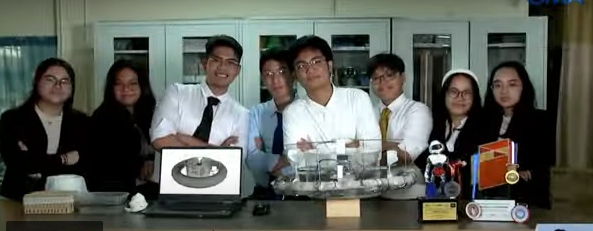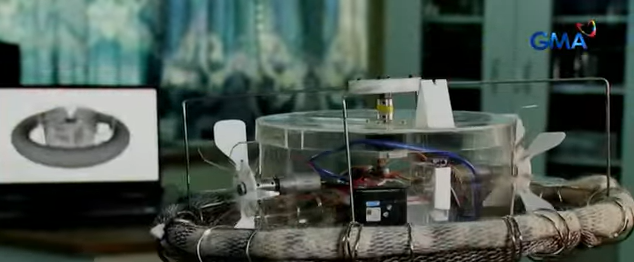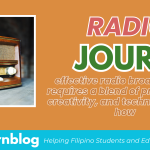Several Grade 11 students from Regional Science High School III in Olongapo City developed an automated system to make the process of cleaning oil spills more effective and safer.
An oil spill occurs when petroleum or other oil-based substances are accidentally released into the environment, typically into bodies of water like oceans, rivers, or lakes. These spills can happen due to various reasons, such as accidents during oil transportation, pipeline leaks, offshore drilling mishaps, or natural disasters damaging storage facilities.

hoto courtesy: Screenshot from Game Changer of 24 Oras, GMA Integrated News
Oil spills are highly detrimental to the ecosystem, harming marine life, birds, and coastal habitats. The thick layer of oil that spreads over the water’s surface blocks sunlight, disrupts photosynthesis in aquatic plants, and depletes oxygen levels in the water, endangering marine species.
Cleanup efforts often involve methods such as using absorbent materials, dispersants, or advanced technologies to contain and remove the oil, but these processes are often challenging, expensive, and time-consuming. Preventing oil spills through strict safety measures and regulations is essential to protecting the environment.
According to Kyan Dimakiling, one of the developers, they decided to create “RapunZpill” because they wanted to introduce a more efficient and more ecologically friendly solution to clean up oil spills.
The prototype, equipped with a distance sensor, is capable of collecting up to 92.54% of the oil in mock tests. The prototype is composed of human hair and dog fur. According to the developers, they tested three designs before arriving at the final product.

Photo courtesy: Screenshot from Game Changer of 24 Oras, GMA Integrated News
Oil spills are dangerous to ecology because they have a devastating impact on ecosystems, particularly in marine and coastal environments. When oil is released into water, it creates a thick, impermeable layer on the surface, which prevents sunlight from reaching underwater plants like algae and seagrass, disrupting photosynthesis and ultimately harming the entire food chain.
Marine life, such as fish, mammals, and invertebrates, can ingest or become coated in the toxic oil, leading to poisoning, suffocation, and long-term health issues. Oil can also contaminate shorelines, affecting habitats for birds, fish, and other wildlife, often causing them to lose their breeding grounds. The toxic compounds in oil can disrupt reproductive cycles and cause genetic damage, leading to population declines.
Furthermore, the cleanup process itself can cause additional harm to the environment. In short, oil spills threaten biodiversity, disrupt ecosystems, and can have lasting effects on the health of the planet’s natural resources.
So, thank you for this invention, smart kids!











